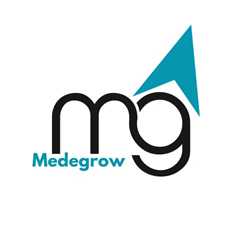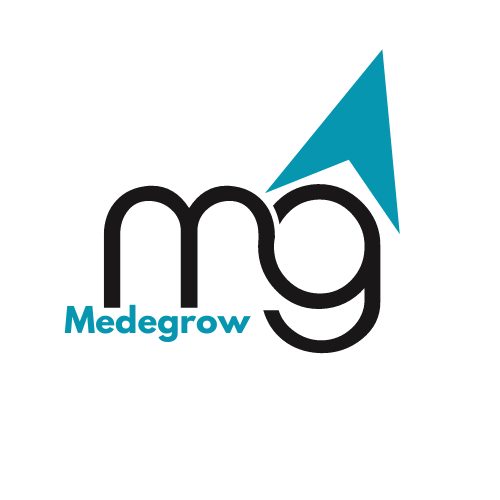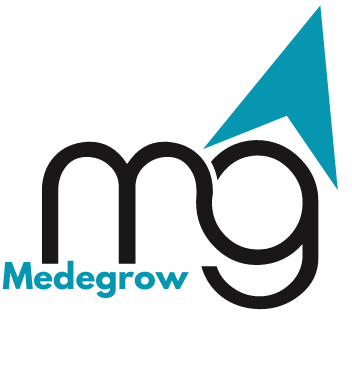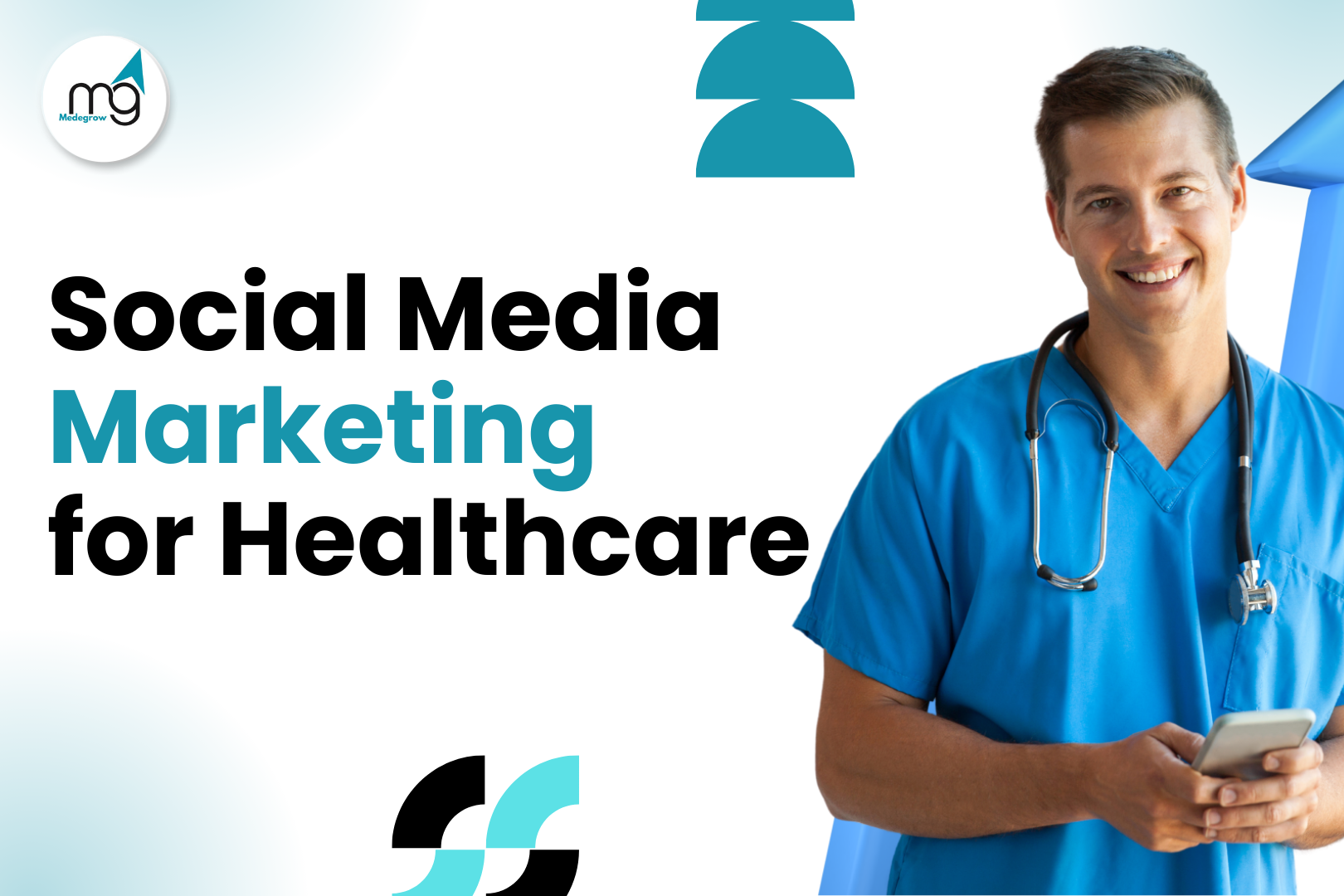
Why Social Media Matters in Healthcare
The rise of social media is reshaping how patients engage with healthcare providers. According to a recent survey, over 70% of patients use social media platforms to research healthcare options and find information about providers.
This shift in patient behavior highlights a crucial opportunity for healthcare organizations: embracing social media marketing for healthcare as a tool to foster patient engagement, build trust, and provide valuable educational content.
In the past, patients relied primarily on word of mouth or traditional forms of marketing to make healthcare decisions. Today, they turn to social platforms like Facebook, Instagram, LinkedIn, and Twitter to connect with providers, share experiences, and access health-related resources.
Social media marketing for healthcare is no longer an option; it’s a necessity for practices and institutions to remain relevant in an increasingly digital world.
This article delves into how healthcare providers can harness social media marketing for healthcare to connect with their patients, promote services, and strengthen their reputation.
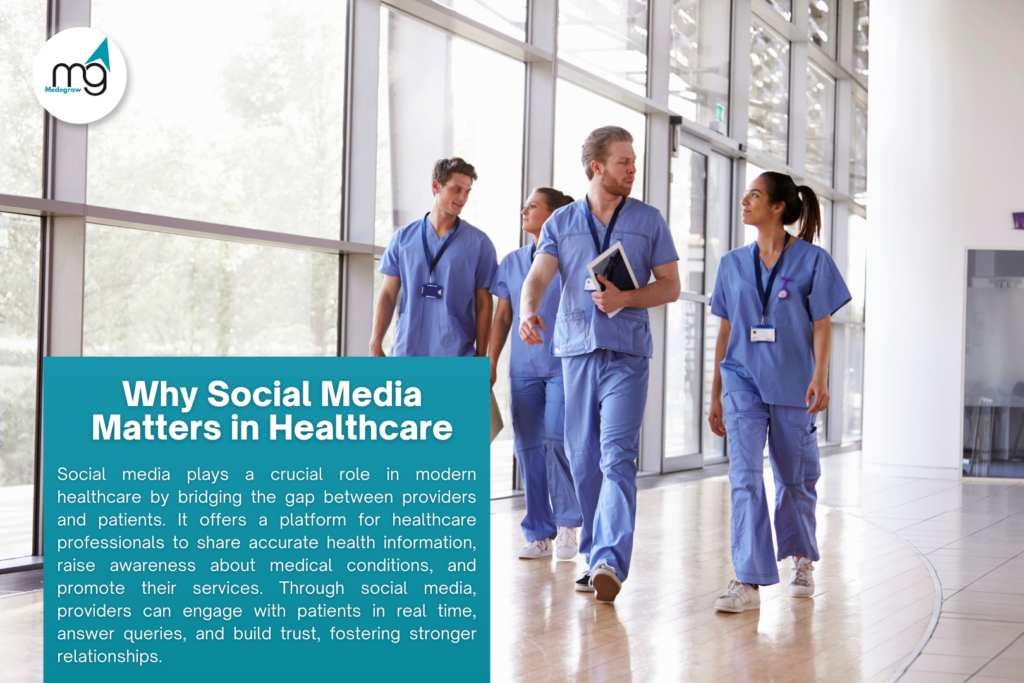
The Role of Social Media in Modern Healthcare
Shifting Patient Behavior
Patients are no longer relying solely on in-person consultations to gather information about their health. In fact, nearly 80% of patients start their healthcare journey by searching online.
Social media marketing for healthcare platforms provide a convenient, real-time source of information that can influence a patient’s decision-making process. Patients are turning to Facebook, Instagram, and LinkedIn to research healthcare providers, check reviews, and learn about available treatments.
Maintaining a strong social media presence allows healthcare organizations to meet these expectations and engage with potential patients where they spend a significant amount of time.
A consistent presence on social media not only provides valuable information to patients but also humanizes the provider, allowing them to connect in a way that traditional advertising can’t.
Building Digital Trust
The healthcare industry is built on trust, and social media marketing for healthcare can play a key role in establishing that trust. By sharing educational content, success stories, and patient testimonials, healthcare providers can demonstrate their expertise and commitment to patient care.
An empathetic approach that highlights patient experiences can significantly improve trust levels and foster long-term relationships.
For example, a local clinic could post success stories of patients who have successfully undergone surgery or a wellness program, providing real-life proof of the clinic’s ability to help. This authentic content resonates with patients, building confidence in the healthcare provider.

Key Benefits of Social Media Marketing for Healthcare
Enhanced Patient Engagement
One of the most significant advantages of social media marketing for healthcare is the ability to engage with patients in real-time. Comments, direct messages, and live Q&A sessions create opportunities for direct interactions.
Healthcare professionals can address patient queries, provide advice, and even engage in health discussions to provide more personalized care.
For example, a physiotherapist might host a live session on Instagram, answering questions related to back pain and offering expert advice on preventive measures.
This kind of engagement not only educates patients but also strengthens their relationship with the provider.
Get a Free Consultation
Take your practice to the next level with social media marketing for healthcare. Connect with patients, build trust, and grow your online presence. Start your journey today—schedule a free consultation!
Expanding Your Reach
Social media marketing for healthcare provides a cost-effective way to reach a broader audience. Targeted ads can be used to reach specific patient demographics or local communities.
This allows healthcare providers to showcase services, such as new treatments, telemedicine consultations, or wellness programs.
For example, a dental clinic might run a targeted Facebook ad campaign promoting a free dental check-up or teeth whitening service, reaching potential patients in the surrounding area.
These campaigns are highly effective in driving traffic and generating leads for the business.
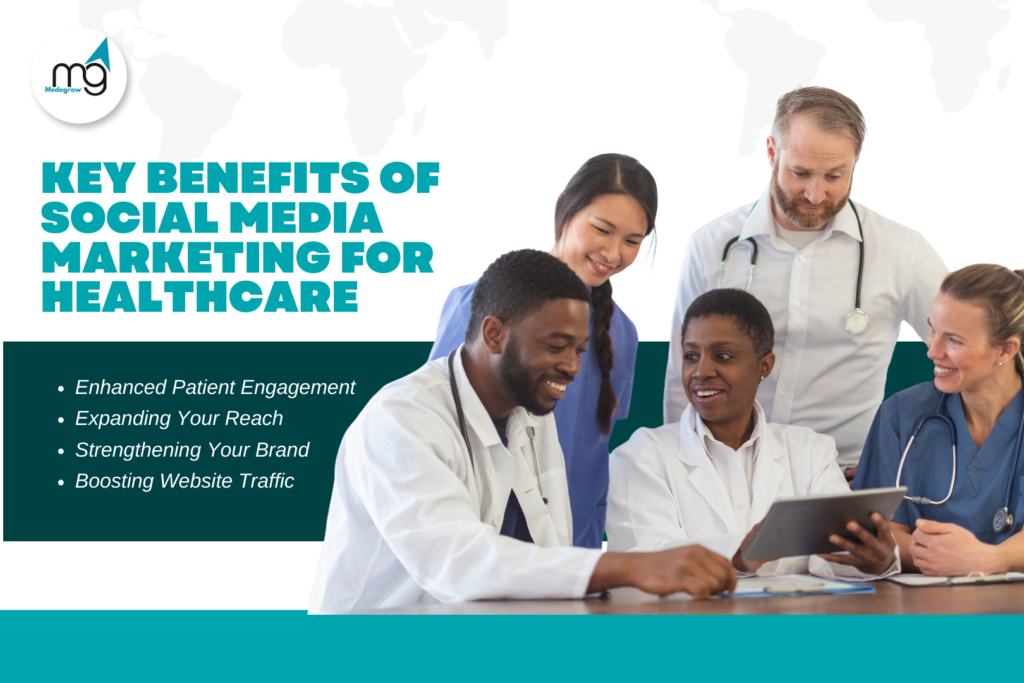
Strengthening Your Brand
Brand consistency across social media platforms is essential for building recognition and trust. By posting regularly and maintaining a cohesive brand message, healthcare organizations can position themselves as reliable and professional.
Social media marketing for healthcare also allows healthcare providers to showcase their unique strengths, whether that be a specialty in pediatric care, holistic therapies, or cutting-edge treatments.
For instance, a clinic that specializes in women’s health might regularly share informative posts about menstrual health, pregnancy tips, and mental health, reinforcing its brand identity as a trusted resource for women’s healthcare.
Boosting Website Traffic
Social media marketing for healthcare isn’t just about posting content—it’s also an essential tool for driving traffic to your website. Sharing blog posts, service updates, patient resources, and even booking links can all encourage patients to visit your website for more information or to schedule an appointment.
Healthcare providers can link their blog posts about common health concerns or recent research developments on their social media profiles to direct traffic to their website. This method increases both website visits and patient conversions.
Platforms to Focus On for Healthcare Social Media Marketing
Facebook remains one of the most powerful platforms for healthcare providers, with its ability to connect with local communities and run highly targeted ads.
Facebook’s features, such as patient testimonials, group discussions, and event promotions, can help providers stay connected with existing and prospective patients.
For example, running a campaign promoting vaccination awareness and offering easy online booking options for flu shots can significantly drive bookings and increase community outreach. Facebook groups dedicated to health and wellness can also provide a space for patients to engage with providers directly.
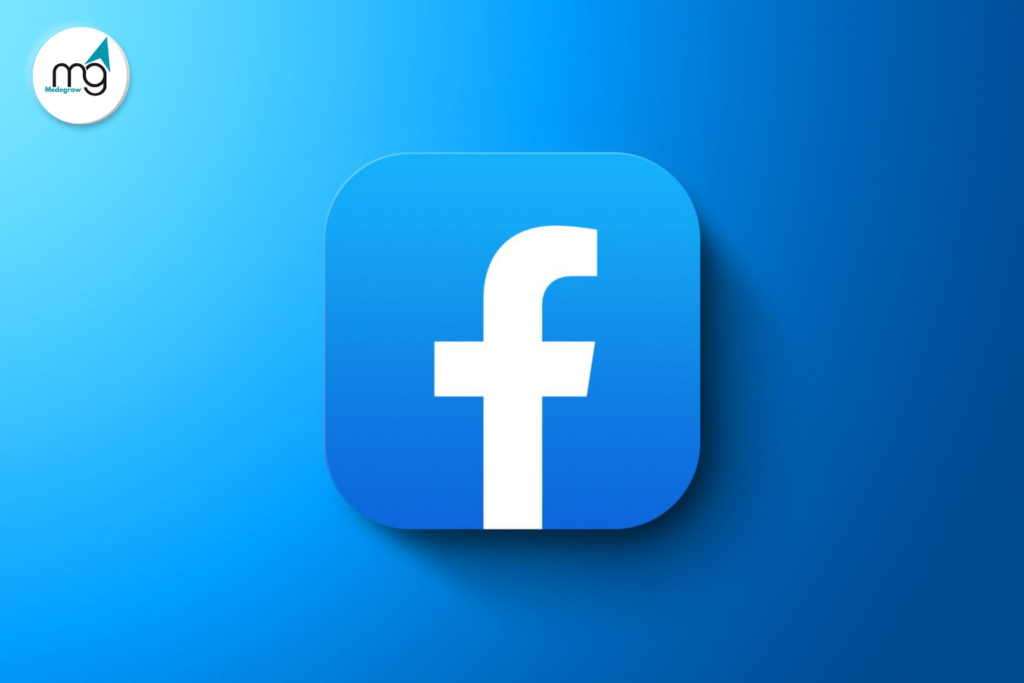
Instagram’s visual format makes it ideal for showcasing patient success stories, behind-the-scenes content, and informative infographics.
By utilizing social media marketing for healthcare, healthcare providers can use the platform’s Stories feature, along with regular posts and reels, to create a dynamic content strategy that engages patients in creative and impactful ways.
A hospital, for example, can use before-and-after visuals to highlight the progress of patients who have undergone rehabilitation. Reels featuring quick health tips or highlighting staff members can also humanize the organization and connect with a younger audience.
LinkedIn offers a more professional platform for healthcare providers to network with other professionals and share industry insights. This platform can also be used to publish long-form articles about telemedicine advancements, healthcare innovations, or leadership in the healthcare sector.
By consistently posting relevant content on LinkedIn, healthcare organizations can position themselves as thought leaders in their respective fields and attract professional connections that could lead to new partnerships or referral opportunities.
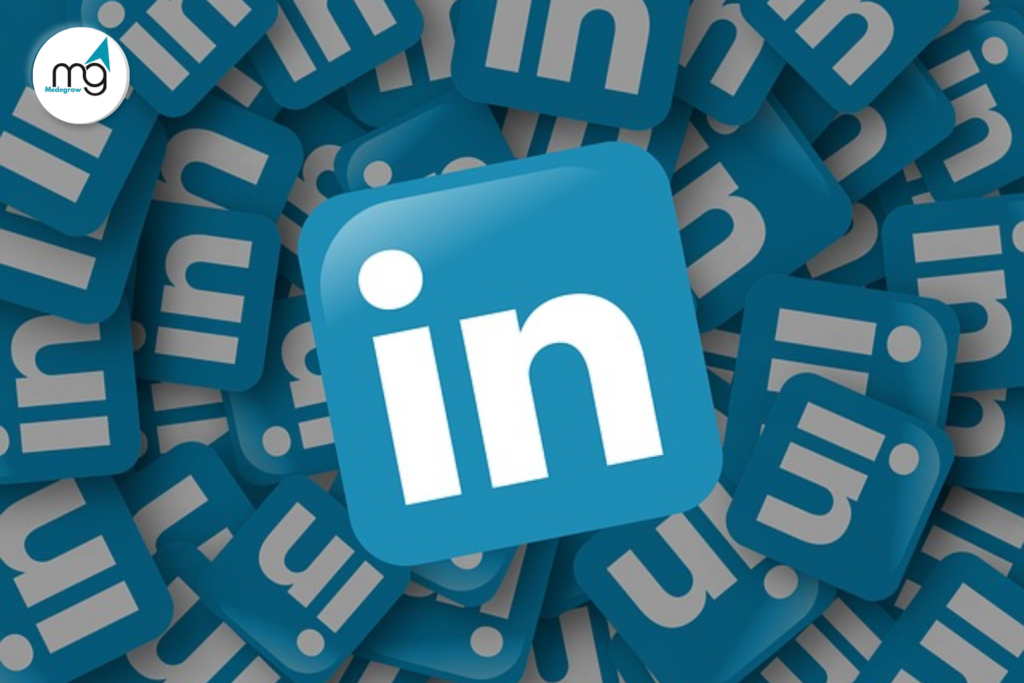
YouTube
For healthcare providers that want to dive deeper into educational content, YouTube is a fantastic platform. Videos can range from patient education materials to virtual tours or explanations of medical procedures.
By incorporating social media marketing for healthcare, providers can offer informative, easily digestible video content, educate patients, and build trust.
For instance, a cardiologist could upload videos discussing the importance of heart checkups or explaining a new treatment method. Providing video content enhances patient understanding and positions the provider as an authority in the field.
Strategies for Effective Social Media Marketing for Healthcare
Content That Educates and Empowers
Content should focus on educating and empowering patients. Posts about common health issues, prevention tips, and treatment options allow healthcare providers to play an active role in patient education.
For example, an orthopedic surgeon could share a post titled “5 Early Signs of Arthritis You Shouldn’t Ignore” or a wellness center could post tips on managing stress during flu season. Such content is informative and encourages patients to engage with the provider for more personalized care.
Also, check out our other blog on Content Marketing for Doctors – discover strategies to engage patients and grow your practice through impactful content!
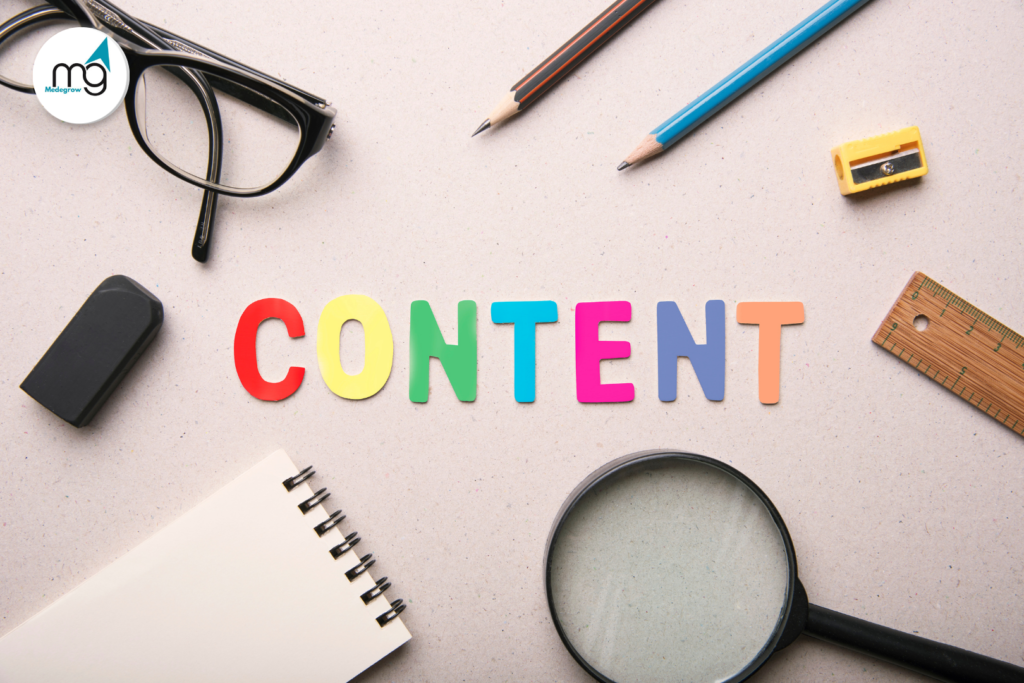
Use of Patient Testimonials and Success Stories
Sharing real patient stories (with consent) is one of the most powerful ways to build trust and credibility. Whether through written testimonials or video interviews, patients’ experiences offer social proof that your practice delivers quality care, making it a key element of social media marketing for healthcare.
For instance, a patient who successfully recovered from surgery could share their story in a video, detailing their experience and recovery journey. Such content is compelling and relatable, making it easy for potential patients to see the provider’s impact.
Utilize Paid Advertising
Paid social media ads are a great way to target specific patient demographics. Platforms like Facebook and Instagram allow for advanced targeting, ensuring that your healthcare services reach the right audience.
Whether promoting a new telemedicine service or a seasonal health check-up, paid ads can help you boost your visibility.
For instance, a pediatric clinic might run Facebook ads specifically targeting parents in a particular area, offering free consultations or health check-ups for their children.
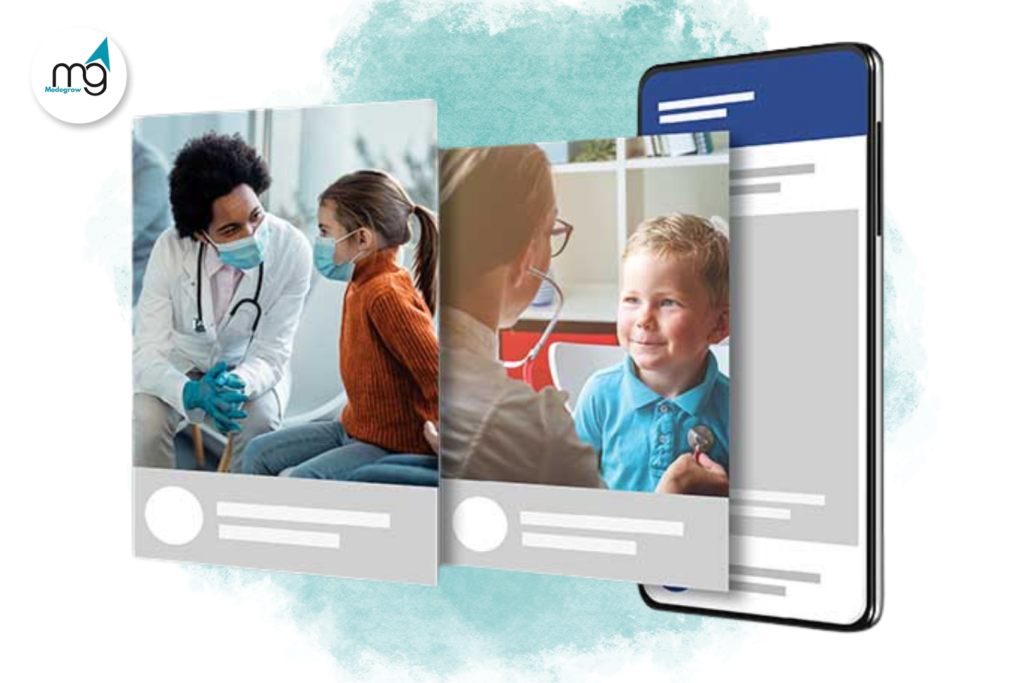
Encourage User-Generated Content
Encouraging patients to share their experiences or use branded hashtags can help create a community around your practice. User-generated content can increase brand awareness, build social proof, and improve engagement.
A clinic might start a hashtag campaign like #HealthyWith[ClinicName], asking patients to share their success stories, healthy tips, or recovery journeys. These posts can be shared on the clinic’s own social media channels as part of social media marketing for healthcare, further building engagement.
Post Consistently
Regular posting is crucial to maintaining engagement on social media. Consistency helps keep your practice top-of-mind for patients and establishes you as a reliable source of information.
Develop a content calendar to post regularly and keep your audience engaged. A simple strategy might involve sharing “Weekly Health Tips” every Monday, or a “Patient Success Story” every Friday.
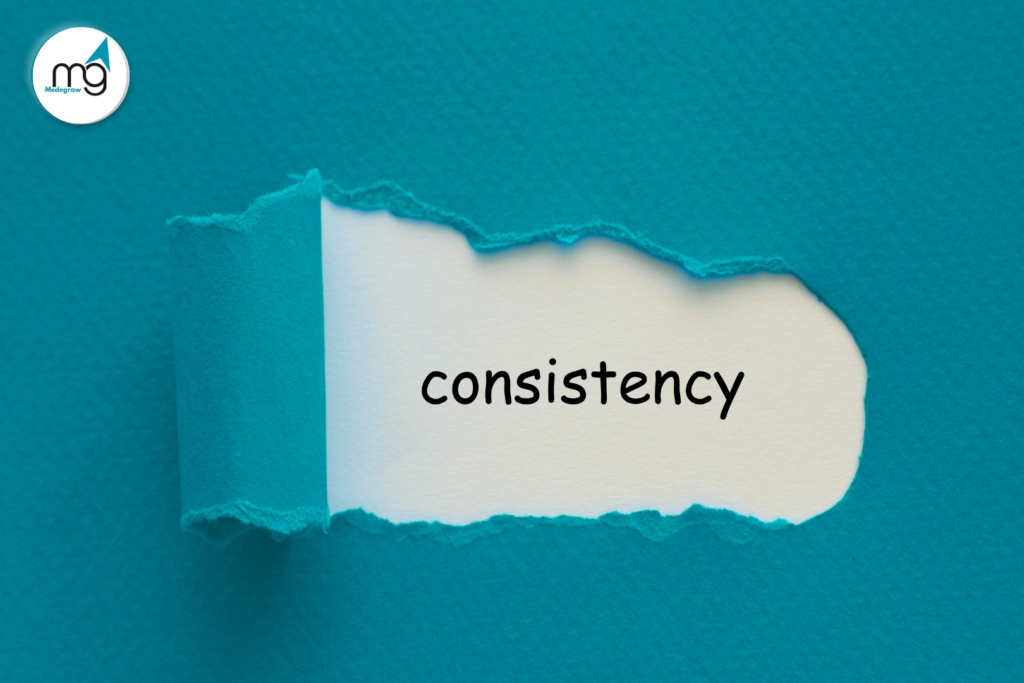
Avoiding Common Mistakes in Social Media Marketing for Healthcare
Ignoring Patient Privacy
Healthcare providers must ensure they follow HIPAA regulations or local privacy laws when posting content related to patients. Avoid sharing identifiable information without patient consent and always ensure that the privacy of sensitive health data is protected.
Overloading with Medical Jargon
While medical expertise is important, content must be written in clear, patient-friendly language. Avoid using complex medical terminology that could confuse or alienate your audience.

Being Inconsistent
Inconsistent posting can lead to disengagement. Patients may forget about your practice if you are not active on social media. Regular, timely posts as part of social media marketing for healthcare help maintain audience interest and foster ongoing engagement.
Neglecting Negative Comments
It’s important to handle negative feedback professionally. Ignoring or deleting negative comments can damage your reputation. Instead, respond thoughtfully and resolve issues in a timely manner.
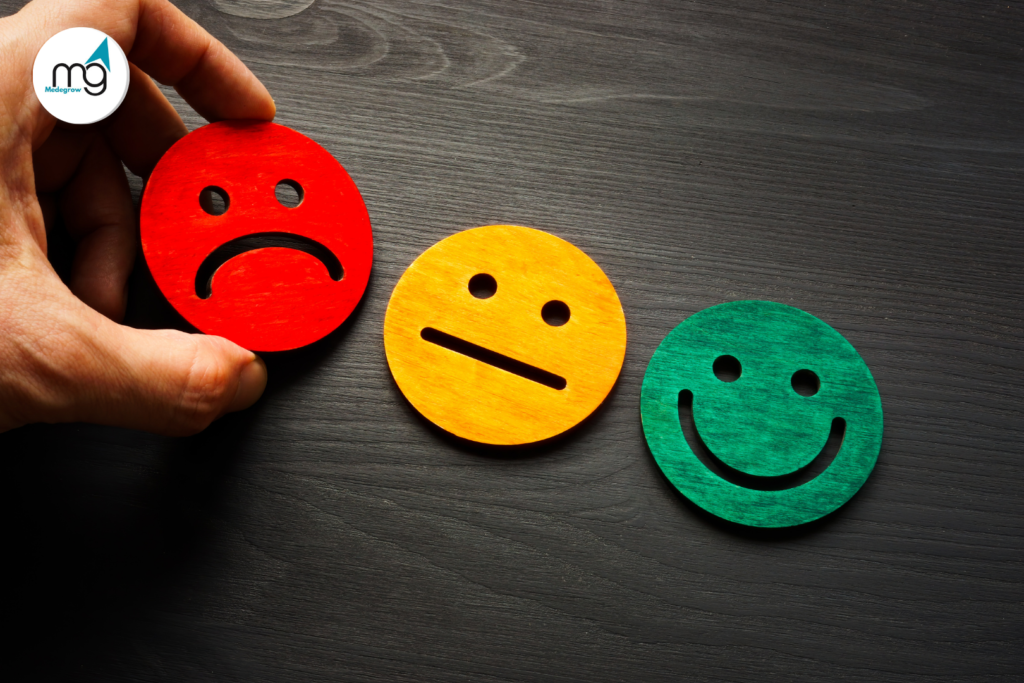
Case Studies: Healthcare Providers Excelling at Social Media Marketing
Small Clinic, Big Impact
A local physiotherapy clinic grew its patient base by 50% in just six months through Instagram Reels. By posting informative, quick exercise tips for common ailments like back pain, they attracted new patients while establishing themselves as a trusted resource for musculoskeletal care.
Large Hospital Chain’s Facebook Success
A large hospital chain utilized Facebook ads to promote a seasonal flu vaccination drive. By targeting local families and offering easy online booking, the hospital achieved over 10,000 bookings within one month, significantly increasing patient engagement and brand awareness.

Measuring Success in Social Media Marketing for Healthcare
Key Metrics to Track
When implementing a social media marketing for healthcare strategy, tracking key performance indicators (KPIs) is crucial. Some important metrics include:
Tools to Simplify Tracking
To streamline tracking and reporting, consider using tools like Hootsuite, Buffer, or Sprout Social, which offer analytics and insights into your social media performance.

Conclusion: The Future of Healthcare Marketing
In the digital age, social media marketing for healthcare offers significant potential to enhance patient engagement, build trust, and promote services.
By creating a strategic, patient-centered approach to social media, healthcare providers can reach and connect with their audience in powerful new ways.
The future of healthcare marketing lies in understanding the needs of patients, embracing new technology, and using social media marketing for healthcare to create meaningful relationships.
With the right strategy, healthcare providers can build a strong online presence that drives both patient satisfaction and business growth.
FAQs Of Social Media Marketing For Healthcare
Why is social media marketing important for healthcare providers?
Social media marketing helps healthcare providers connect with patients, share valuable health information, build trust, and increase the visibility of their practice. It’s an effective way to engage with both current and potential patients.
Which social media platforms are best for healthcare marketing?
Platforms like Facebook, Instagram, LinkedIn, and Twitter are ideal for healthcare marketing. Each platform serves different purposes, such as patient engagement, professional networking, and sharing educational content.
What type of content should healthcare providers post on social media?
Healthcare providers can post patient success stories, health tips, FAQs, educational infographics, updates about services, and behind-the-scenes content to humanize their practice and build trust.
How can social media marketing benefit patient education?
Social media allows healthcare providers to share accurate and easily accessible health information, debunk myths, and educate patients on various medical conditions, treatments, and wellness practices.
Is social media marketing compliant with healthcare regulations?
Yes, as long as healthcare providers follow guidelines like HIPAA compliance (in applicable regions) and avoid sharing personal patient information. Always ensure content aligns with ethical and legal standards in healthcare marketing.
